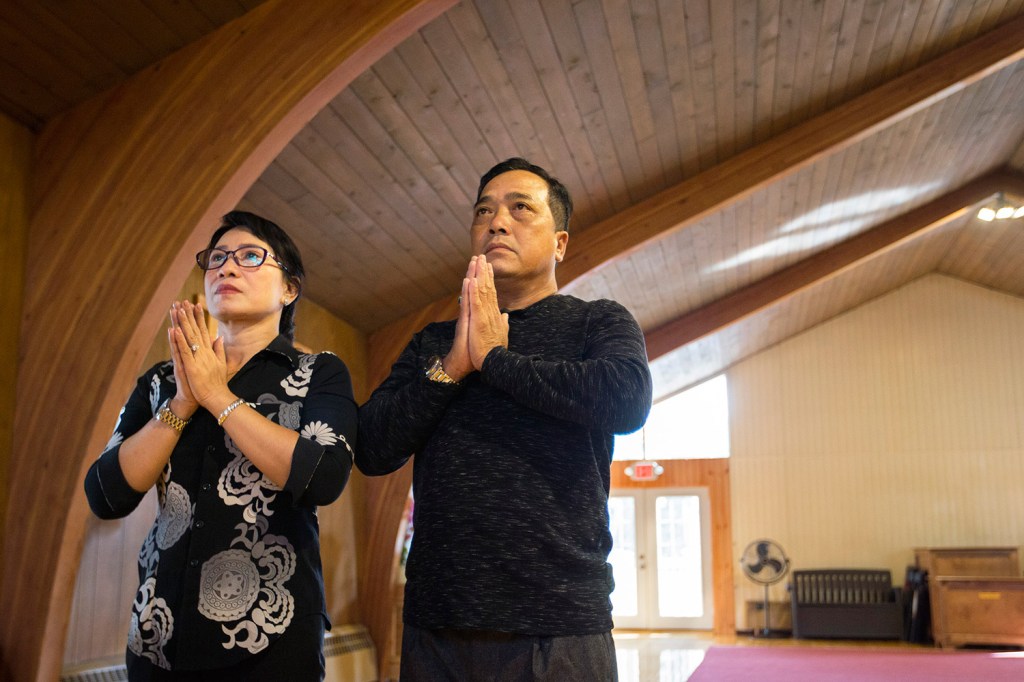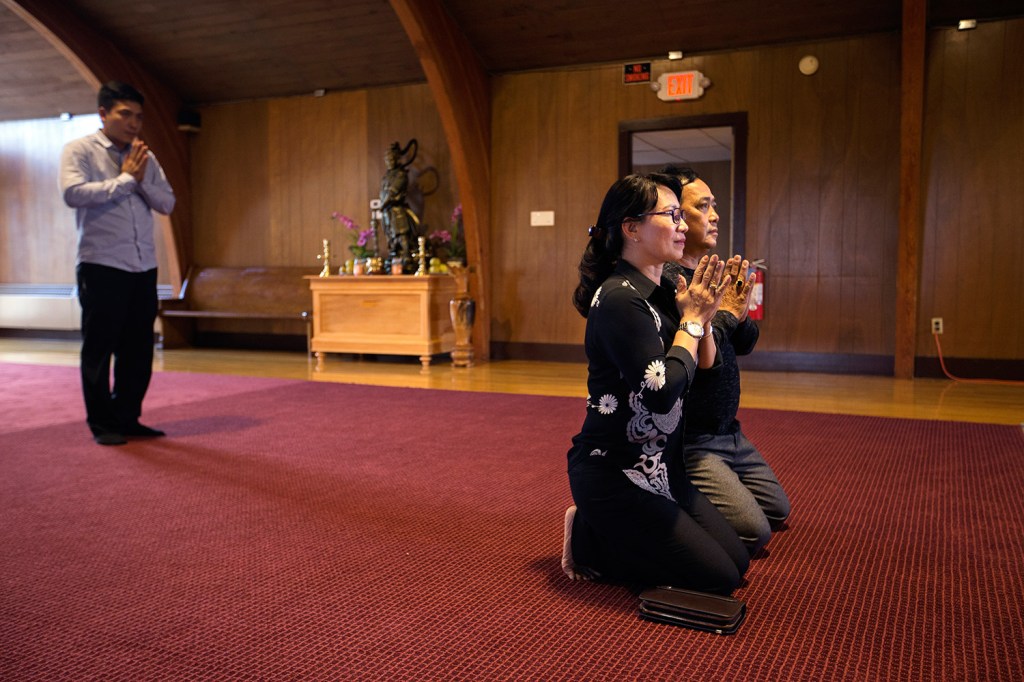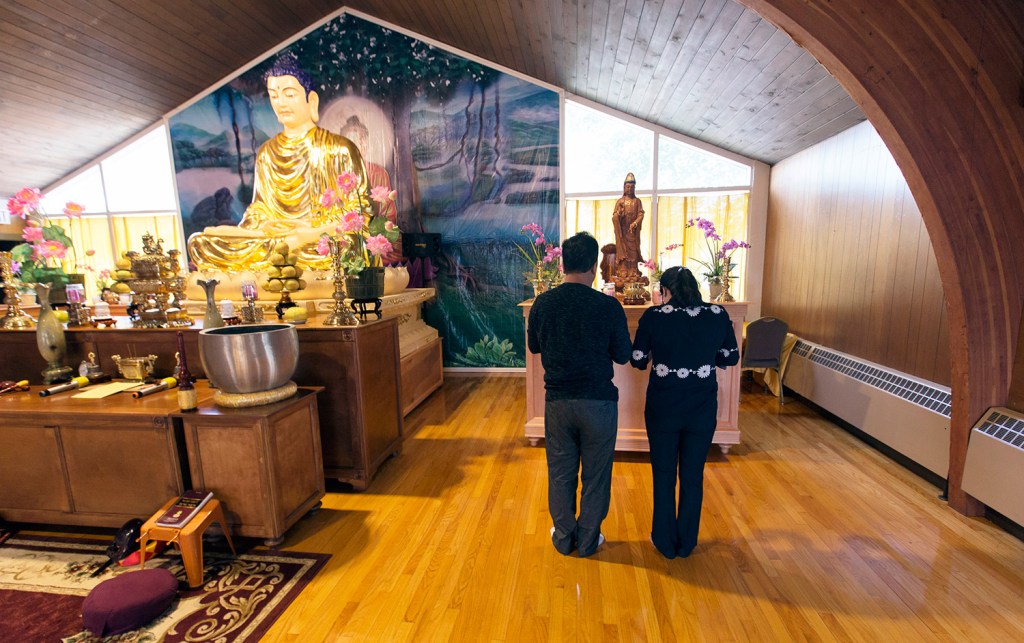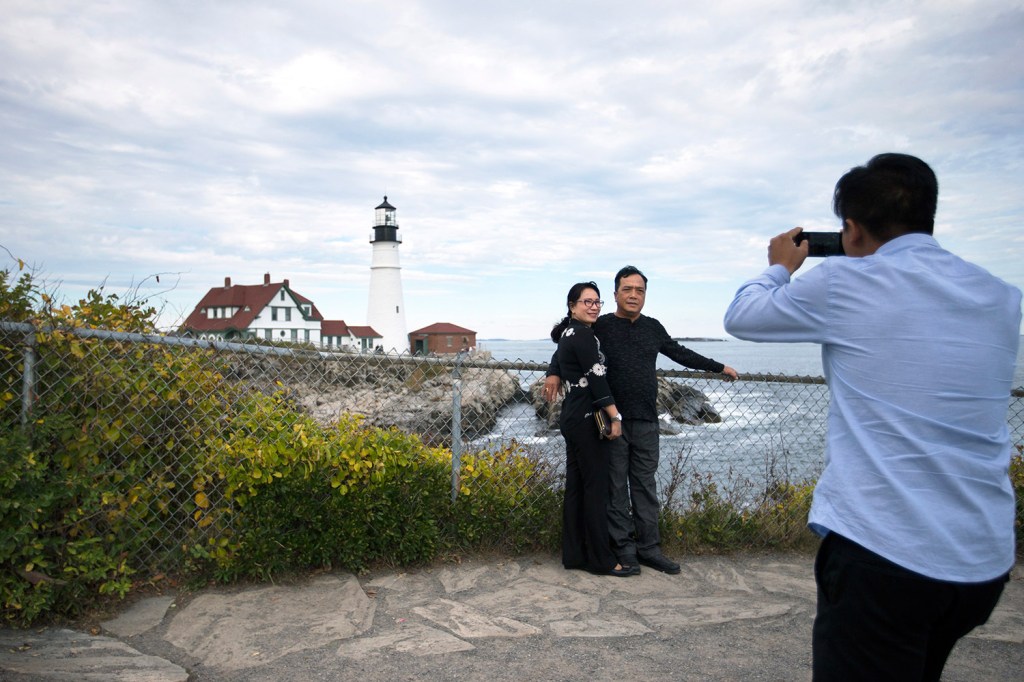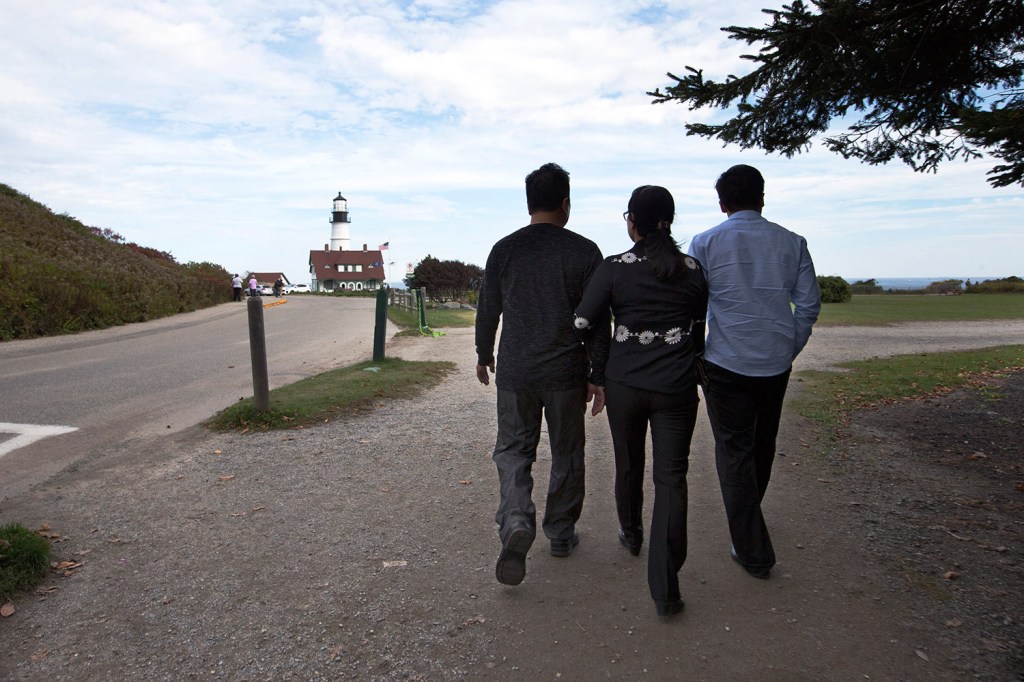Last November, three days after Quang Nguyen became a naturalized citizen, he applied to bring his parents from Vietnam to live in the United States.
On Oct. 7, his father, Hung Nguyen, 53, and his mother, Hoa Le, 49, arrived at their new home with him in Portland, Maine. In the last week, after resting up a bit, they have visited their son’s variety store in South Portland and prayed at the Buddhist temple that he was instrumental in opening. They are impressed and excited and a little bit overwhelmed.
“We are very proud of him for creating a cultural gathering place for the Vietnamese community here,” Hung Nguyen said through his son. “I’m thankful for the opportunities America has brought to my family and all the people here who helped our son.”
Family sponsorship is one of the major ways that immigrants come to the United States, accounting for more than 200,000 of the 1 million new lawful permanent residents or “green card” holders admitted annually in recent years, according to the U.S. Department of Homeland Security.
Each year, Maine gets 1,200 to 1,700 new lawful permanent residents, a tally that includes family members, employer-sponsored skilled workers, refugees and asylees. The annual nationwide limit for family sponsorship ranges from 226,000 to 480,000 people, depending on the previous year’s immigration levels.
Naturalized and natural-born citizens and green card holders may sponsor family members, including parents, spouses, siblings and adult children. A green card allows a person to live and work permanently in the United States. The steps to get a green card vary widely depending on individual situations.
Quang Nguyen, 28, is the eldest of four boys. He came to Maine in 2007 to attend Southern Maine Community College on a student visa. Now, he owns several businesses that employ 15 people in Greater Portland.
His brother Minh, 25, also came to the United States on a student visa. He’s a civil engineer who graduated from the Wentworth Institute of Technology in Boston, works for the Massachusetts Department of Transportation and plans to continue his studies at Northeastern University, Nguyen says. He has yet to become a naturalized citizen.
Their other brothers – Chinh, 18, a college student, and Thang, 16, a high school student – will remain in Vietnam with their 86-year-old grandmother for the time being, Nguyen says. His parents will apply to bring the boys to the United States as soon as possible. Nguyen also could sponsor his siblings, but the process would take a lot longer.
“If I applied for them, it would take about 13 years,” Nguyen said. “If my parents apply, it will take about two years.”
Nguyen intends to employ his parents in an aquaculture operation or another fishing-related business that he plans to start in the coming months. It’s an industry they know well. They raised fish, shrimp and escargot on the shores of Cam Ranh Bay for more than 25 years.
“They are very nervous but excited,” Nguyen said. “I’m bringing them here because I want to support them. I want them to have better health care. To have a better retirement. To have a better life.”
For Nguyen, like many immigrants, the desire is strong to bring family members to the United States so they can share the American dream.
“We are a close family,” Nguyen said. “You want everyone to be together and grow together. I think this is going to be one of my best years, celebrating my 10th year in the U.S. by bringing my parents over.”
Last week, Nguyen and his parent also visited Portland Head Light in Cape Elizabeth, where the sight of Casco Bay reminded his mother of the home, family members and friends they have left behind in the seaside city of Cam Ranh.
“It makes me a little homesick,” Hoa Le said through her son, tears rolling down her face. “It’s hard, but now that we are here, we will look forward and try our best to adjust to a new culture.”
Send questions/comments to the editors.

